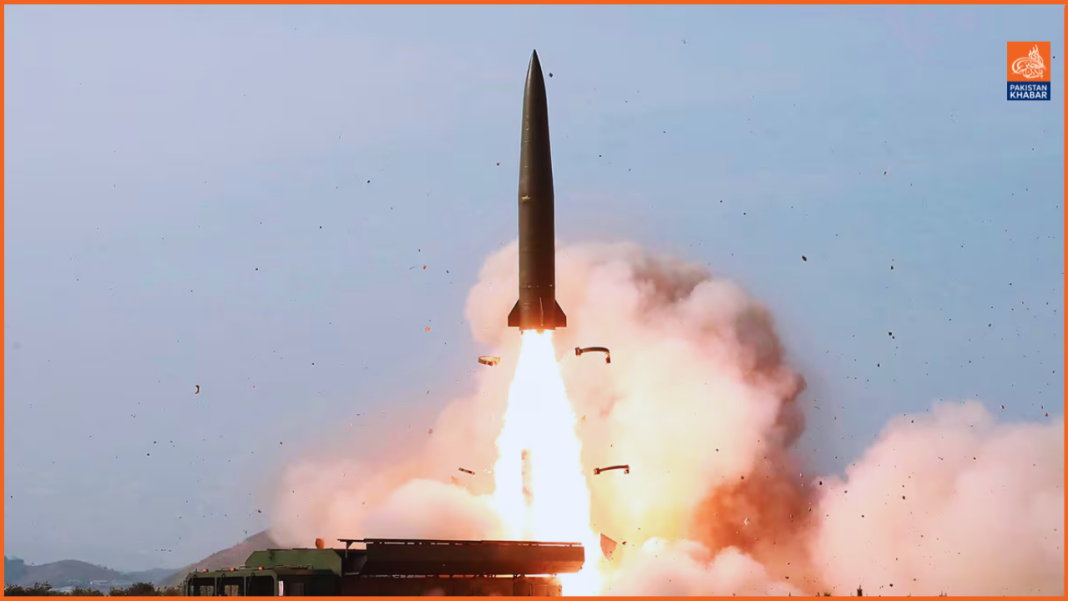North Korea confirmed on Thursday that it successfully launched an intercontinental ballistic missile (ICBM), marking the country’s 12th missile test this year.
In a statement, the Ministry of National Defense noted that the test was a significant milestone for the Missile Administration and was reported by the state-run Korean Central News Agency (KCNA). According to KCNA, the test was conducted under the orders of the North Korean leader and demonstrated the country’s advanced strategic missile capabilities. Kim Jong Un personally oversaw the launch, describing it as a crucial military action aimed at warning adversaries whom he accused of escalating regional tensions.
Kim emphasized that the test was essential to strengthening North Korea’s nuclear capabilities in response to what he described as the dangerous tightening of nuclear alliances by rival nations. He reiterated the commitment to bolstering the country’s nuclear forces and maintaining a strong defense posture against potential threats.
Japan’s Defense Ministry reported that the missile was launched eastward at 7:11 a.m. local time and flew for approximately one hour and 26 minutes before landing outside Japan’s exclusive economic zone, west of Okushiri Island. The missile was launched on a lofted trajectory, a method often employed by North Korea to avoid overflying neighboring countries. It reportedly reached an altitude of over 7,000 kilometers (4,349 miles) and traveled about 1,000 kilometers (621 miles).
In response, Japanese Prime Minister Shigeru Ishiba announced plans for an emergency meeting of the National Security Council. Japan’s Coast Guard confirmed there were no immediate reports of damage from the launch.
This test follows North Korea’s recent firing of multiple short-range ballistic missiles on September 18. South Korean military authorities also detected the launch and suggested it originated near Pyongyang. Amid rising tensions, there have been concerns about North Korean troops being deployed to Russia, which has drawn condemnation from South Korea, the U.S., and NATO.
The U.S. expressed strong condemnation of the ICBM test, labeling it a clear breach of several UN Security Council resolutions. Although the launch did not immediately threaten U.S. personnel or allies, Sean Savett, spokesperson for the White House National Security Council, remarked that it unnecessarily escalated tensions in the region. He urged all nations to denounce North Korea’s actions and called for meaningful dialogue to address the situation.
In a separate development, a Seoul-based human rights group reported that over 100 North Koreans have gone missing after being detained by secret police since 2021. The Transitional Justice Working Group indicated that most of those detained were accused of attempting to contact relatives in South Korea.




